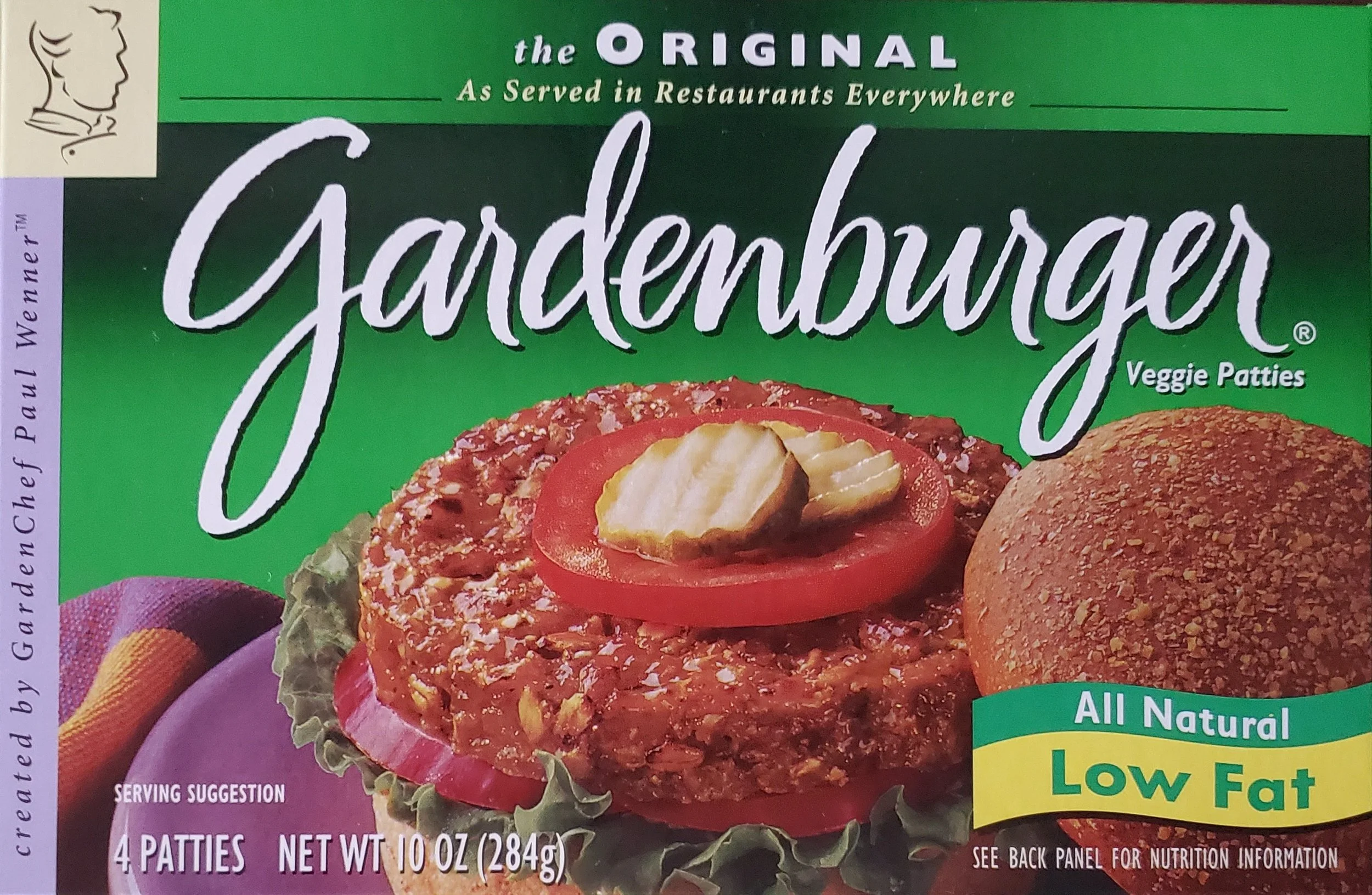Case Study: Captured Top Share in emerging meat substitute category by capitalizing on heavy user segment driven by ethics
Perceive:
Gardenburger was suddenly facing aggressive competition from Kraft and Kellogg’s who wielded considerable power within grocery chains. All 3 brands were positioned themselves as “low fat” which was a popular but waning food trend.
I conducted an attitudinal segmentation study including in-home ethnographies which exposed that self-identified vegetarians were often following the lifestyle for weight management or to appease vegetarian family member, but often also ate meat.
Segmentation research confirmed a values difference between these “low-fat” users and “ethics-driven” users who purchased to respect the animals, the planet, and the wholistic health of their bodies.
A subsequent attitude, awareness, and usage study quantified the relative value of these two segments. Those who bought “low-fat” were a significantly larger group, but purchased only and average of 3 boxes per year. The “ethical” consumer bought 4 boxes per month representing the biggest sales volume segment of the market.
Prescribe:
Given the brand’s roots in the Natural Foods channel especially with notable retail pioneers like Whole Foods, Gardenburger had the right to boldly claim an ethics-rooted positioning. The tagline, “Eat Positive” became the lynch-pin of the restage.
Packaging moved from bright jewel-tones with very manicured architecture to one that made the burger the hero, emanating divine light and a distinctly organic feel.
Copy on the package and in all consumer facing materials reflected the values of this heavy user segment, including fun details like a Karma points badge that could be redeemed in this life and the next.
The message to retailers was that they had two brands, Kraft and Kellogg’s that were fighting over the same group of light users. They needed to keep Gardenburger because we were the most relevant to the valuable heavy user.
Perform:
Distribution losses were reversed fueling a business turn-around
Investors had the confidence to seek liquidity and decided to put the business up for sale
Business Impact:
Generated a 540% gain in EBITDA.
Enterprise value was restored
Ownership gained the opportunity for liquidity at 8X trailing EBITDA


